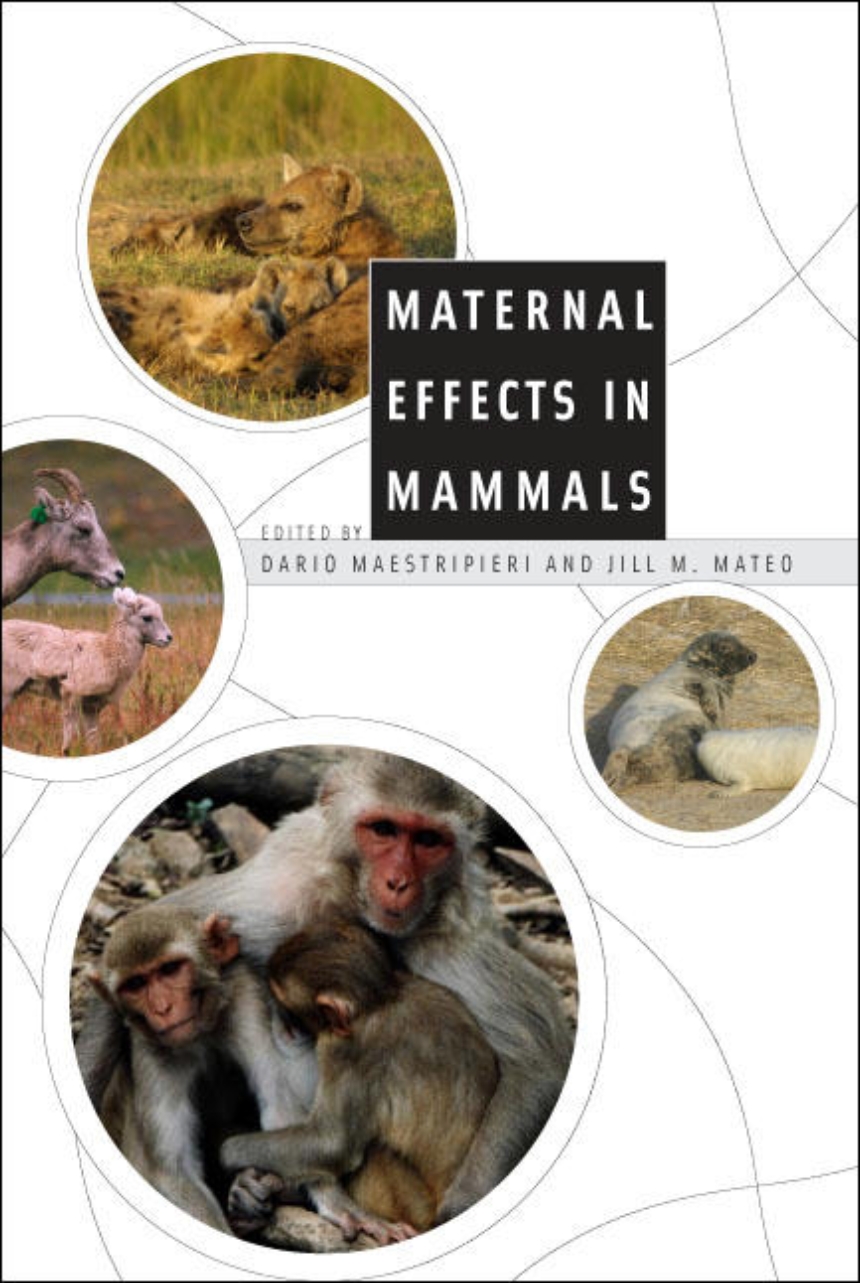Maternal Effects in Mammals
Evolutionary maternal effects occur whenever a mother’s phenotypic traits directly affect her offspring’s phenotype, independent of the offspring’s genotype. Some of the phenotypic traits that result in maternal effects have a genetic basis, whereas others are environmentally determined. For example, the size of a litter produced by a mammalian mother—a trait with a strong genetic basis—can affect the growth rate of her offspring, while a mother’s dominance rank—an environmentally determined trait—can affect the dominance rank of her offspring.
The first volume published on the subject in more than a decade, Maternal Effects in Mammals reflects advances in genomic, ecological, and behavioral research, as well new understandings of the evolutionary interplay between mothers and their offspring. Dario Maestripieri and Jill M. Mateo bring together a learned group of contributors to synthesize the vast literature on a range of species, highlight evolutionary processes that were previously overlooked, and propose new avenues of research. Maternal Effects in Mammals will serve as the most comprehensive compendium on and stimulus for interdisciplinary treatments of mammalian maternal effects.
352 pages | 9 halftones, 11 line drawings, 10 tables | 6 x 9 | © 2009
Biological Sciences: Behavioral Biology, Evolutionary Biology
Cognitive Science: Human and Animal Cognition
Reviews
Table of Contents
Contributors
1. The role of maternal effects in mammalian evolution and adaptation
Dario Maestripieri and Jill M. Mateo
2. The genetics and evolutionary consequences of maternal effects
James M. Cheverud and Jason B. Wolf
3. A theoretical overview of genetic maternal effects: evolutionary predictions and empirical tests with mammalian data
Michael J. Wade, Nicholas K. Priest, and Tami E. Cruickshank
4. Maternal effects on evolutionary dynamics in wild small mammals
Andrew G. McAdam
5. Maternal effects in wild ungulates
Alastair J. Wilson and Marco Festa-Bianchet
6. Maternal effects on offspring size and development in pinnipeds
W. Don Bowen
7. Maternal influences on development, social relationships and survival behaviors
Jill M. Mateo
8. Maternal influences on offspring food preferences and feeding behaviors in mammals
Bennett G. Galef, Jr.
9. The trans-generational influence of maternal care on offspring gene expression and behavior in rodents
Frances A. Champagne and James P. Curley
10. Effects of intrauterine position in litter-bearing mammals
John G. Vandenbergh
11. Maternal effects in fissiped carnivores
Kay E. Holekamp and Stephanie M. Dloniak
12. Maternal influences on offspring growth, reproduction, and behavior in primates
Dario Maestripieri
13. Maternal effects, social cognitive development, and the evolution of human intelligence
David F. Bjorklund, Jason Grotuss, and Adriana Csinady
14. Maternal effects in mammals: conclusions and future directions
Jill M. Mateo and Dario Maestripieri
Acknowledgments
Index